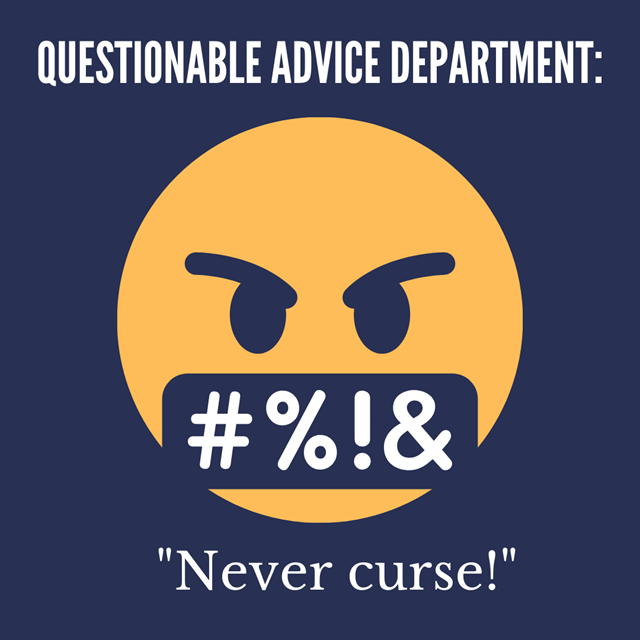
"They don't want us in there anyway....It's, 'How we get Clemson out?' It's the dadgumest thing."
– Clemson Football Coach Dabo Swinney
"Gutter language belongs you guess where," writes The Buckley School’s founder in Strictly Speaking. The school’s coaching staff has long advised students to avoid foul language, to make the same choice as some of our favorite Southern coaches and replace that "damn" with a less offensive "dadgum" or "darn."
 Dabo Swinney on the dadgum field. Photo by By LambeauLeap80.
Dabo Swinney on the dadgum field. Photo by By LambeauLeap80.
But profanity makes its way into speeches more and more these days, even speeches delivered from the highest office in the land.
Is it time to retrieve those words from the gutter and put them to use?
In her book, Swearing is Good for You: The Amazing Science of Bad Language, Emma Byrne examines cursing through research done by psychologists and sociologists.
And as you may have already suspected, she concludes that a well-placed profanity can have a positive impact on a message.
"Under certain circumstances, profanity provides relief denied even to prayer."
– Mark Twain
In an interview with Smithsonian Magazine, Byrne discussed Donald Trump's speech patterns and pointed out that deliberate use of profanity in a speech is a technique similar to body language, eye contact or vocal emphases.
"As with rehearsed gestures and well-orchestrated photo opportunities, swearing can be used instrumentally to give an impression of passion or authenticity," she says.
Or as Trump supporters will tell you, it's proof that he "tells it like it is."
Considering our experience and what Byrne has to say, rather than outright ban all four-letter words perhaps we can agree to these guidelines:
1. Be deliberate
Random, careless f-bombs are no more welcome than a steady stream of ums and you knows. Depending on your audience, they may be considerably less.
We always say choose your words carefully when you speak—and that goes for curse words, too. If you're going to take this risk, do it for a reason.
2. Be appropriate
While in general, audiences may now be more accepting of a "damn" instead of a "darn," consider who's in the room and how likely they are to be offended, the occasion (formal or informal), and the longevity of your remarks (taped for the company archives?).
It also seems worth considering that not all foul words are created equal.
When in doubt (or speaking to the Boy Scouts), leave it out. You can manage to be passionate, strong, honest, and authentic without profanity.
3. Be stingy
Even if you determine that a) you're choosing to use a four-letter word for a good reason and b) it's appropriate, don't liberally pepper your presentation with salty language.
Why do we say that? Because when used too much, four-letter words lose their punch. They become commonplace instead of taboo. And when that happens, you might as wells say "dadgumit."
Learn more
For the full article from Smithsonian Magazine, go here.
For a look back at the legacy of George Carlin's "7 Dirty Words," check this out.
For a list of 50 cuss word alternatives, here's this.






